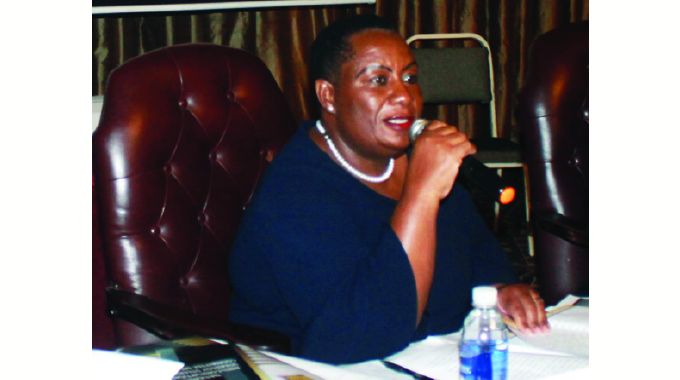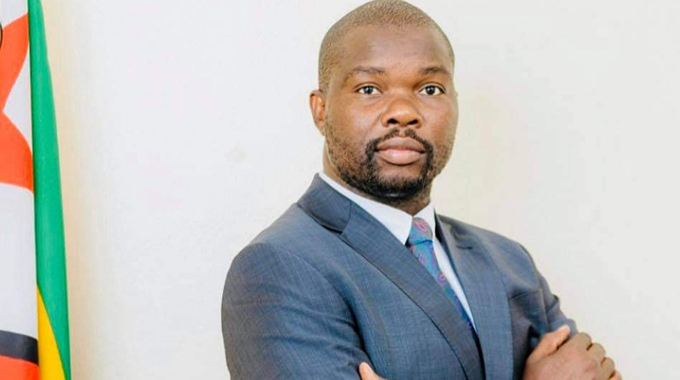3 new innovative units usher UZ to a higher level

Rumbidzayi Zinyuke Senior Reporter
Three new innovative units were commissioned by President Mnangagwa at the University of Zimbabwe yesterday — a major international centre for surgical simulation and training in non-invasive surgery, which will draw in students from across Africa; a number-plate production plant that has input from other colleges, and the student bus terminus.
The President wants institutions of higher learning to leverage on the high-end human capital they have and the natural resources so they can find technical solutions to harness the opportunities in the country.
Speaking after commissioning the three units, the President said universities and colleges should be centres of excellence through engagement and partnerships across all sectors of the economy.
“The nurturing of our students to be part of the building process of our great country is highly commendable as it fosters responsible and productive students, staff and citizenry towards the realisation of the national vision 2030 and beyond. As an institution you have demonstrated that you are indeed adhering to the mantra, Nyika inovakwa nevene vayo; Ilizwe lakhiwa ngabanikazi balo,” he said.
“Going forward, I urge the University of Zimbabwe to continue introducing new and innovative methods of teaching and learning. These must create a balance for students and staff to engage in processes of research, innovation and production of goods and services for the nation.”
The International Centre for Surgical Simulation is one of the few on the African continent and will make the country an international training centre in laparoscopic surgery, also known as keyhole surgery. Laparoscopy is a low-risk and minimally invasive surgical process used for examining the organs within the abdomen.
“The facility is set to become a cornerstone towards enhancing skills acquisition and transfer among our health care workers in the field of surgery. Until now, Government has been sending Zimbabwean surgeons outside the country to be trained on minimally invasive surgical skills. This facility is one of a few on the continent and will facilitate the training of other medical specialists from the Southern, Eastern and West African regions,” the President said.
The centre would also ensure a corps of medical specialists that have the requisite skills upon graduation, to be deployed as surgeons at the Quinary Hospital being built by the Second Republic in Harare.
The centre was established with expertise from the Karl Storz Endoskope of Germany, the London Surgical Simulation Academy, Queen Mary College of the University of London as well as the College of Surgeons of East, Central and Southern Africa.
An agreement with Stanford University of California USA, would broaden the pool of staff and students through exchange programmes and other quality control modalities.
Such international partnerships were welcome and highly applauded as the linkages dovetailed with his administration’s foreign policy thrust that “Zimbabwe is a friend to all and an enemy of none”.
The number plate plant involves the University of Zimbabwe in collaboration with Harare Institute of Technology, Midlands State University, Chinhoyi University of Technology, Bindura University of Science Education, National University of Science and Technology as well as the Harare and Mutare Polytechnics. The universities and colleges formed a consortium establishing the National Transtech Solutions (Private) Limited Company, which is running the Vehicle Number Plate Production Plant.
The plant is expected to localise production of number plates at a competitive cost.
“This is a clear demonstration of the centrality of the Heritage Based Education 5.0 philosophy as a panacea to addressing the various socio-economic gaps and challenges in our country. The Vehicle Number Plate Production Plant can produce about 5 million number plates per year, against our annual demand of 200 000, thereby exceeding our national requirement,” the President said.
He encouraged the consortium to scale up research and innovation towards the production of local raw materials to support the plant.
President Mnangagwa also urged UZ to remain mindful of the importance of leveraging and recognising the unique expertise which reside in other institutions for the good of the country.
He said the Students’ Bus Terminus was the first of its kind and attested to the immense possibilities of institutions that “educate to change lives”.
“I, therefore, call upon more institutions of higher learning and other sectors of the economy to move in tandem with the growing global trends and practices through leveraging on strategic partnerships, science, technology and innovations from other jurisdictions.”Kugara nhaka kuona dzevamwe”,” he added
He challenged UZ to also keep in mind the distinct socio economic needs of all parts of the country and consolidate all its innovations for the good of the people.
Transport and Infrastructure Development Deputy Minister Mike Madiro, who was representing Minister Felix Mhona, said the innovations displayed by the University would propel the country towards the attainment of vision 2030.
“A well aligned human capital is an indispensable tool in the radical transformation of Zimbabwe. What we see today is evidence of massive transformation of the higher education in Zimbabwe from being more silos of knowledge to being knowledge-based institutions,” he said.
The number plate plant would save the country the much needed foreign currency and meet the high demand for number plates.
Minister of Higher and Tertiary Education, Innovation, Science and Technology Development Professor Amon Murwira said the results of an education system were normally observed in the quality of life of nations.
“Good education fosters innovation and innovation results in people having enough food and means to produce that food, enough medicine and means to produce that medicine, enough technology and the means to produce that technology. Good education results in things that we can all understand and use,” he said.
President Mnangagwa’s strong belief in the role of knowledge, science and technology and innovation in anchoring development for all economic sectors had opened opportunities for the industrialisation and modernisation of the country.









Comments